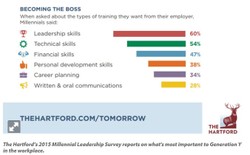Before Internet days one would have to write snailmail to universities to request information that is now easily obtained from around the world 24/7. Google the university of your choice and you should see on the google search page a direct click to "graduate studies" or "graduate programmes" or "graduate degrees".
On the graduate studies web page you will have tabs that allow you to explore the various aspects of life as grad at this institute, including:
1. degrees, certificates and diplomas offered in the faculties and departments at the university;
2. fees and costs: tuition, books, laboratory, student union, and other incidental university fees;
3. financial support, loans available to students, student grants and awards given for achievement;
4. expected costs of living in the area, whether this is dormitory or off-campus housing;
5. information required by international students'
6. calendar: school year schedule and exam times.
Some information on admission requirements, courses that can or must be taken, faculty members and their research interests, departmental resources (specialty library, laboratories and research centers, etc.) will be found in the graduate studies page and some will be found on departmental pages. Check these out and compare for the institutes you may be interested in attending.
Somewhat harder to find are departmental and faculty regulations. Many graduate students never even know such formal regulations exist. Approved by the Faculty of Graduate Studies in many universities, these regulations help you know, in part, what you are getting yourself into. For example, the exams required and thesis stipulations for a degree. The department cannot in theory make unreasonable demands upon its students. Some departments have been known to deny to students the existence of such regulations. That is more difficult in today's world of Internet, but it can still happen. You want to know what protections are in place for students in the event of a dispute between the student and the department.
In addition, if financial support is essential to your ability to complete your studies, make sure you know what the university offers and how clear they are about having support available and under what conditions.









 Visiting an Art Gallery With a Two-Year-Oldon 07/27/2015
Visiting an Art Gallery With a Two-Year-Oldon 07/27/2015
 Using the News to Enhance Jewish Identity in Jewish Kidson 07/24/2015
Using the News to Enhance Jewish Identity in Jewish Kidson 07/24/2015
 Xi'an - Not Just Terracotta Warriorson 06/09/2015
Xi'an - Not Just Terracotta Warriorson 06/09/2015
 Sew Your Own Wedding Dress - or Your Daughter'son 02/06/2015
Sew Your Own Wedding Dress - or Your Daughter'son 02/06/2015



Comments
My daughter, a senior this fall at O.S.U, just met with advisor regarding her grad school selection and application process. She is working in a research lab to help her get into the school of her choice. She is unsure which schools she will narrow it down to and yet is still on the research process. This article is timely and helpful. I especially like your guidelines and advice as it reflects my own. Thanks, katiem2
You are right, MBC - it can be (is) a very political process and I hope I made that clear while not overstating the case above. But isn't any place of work (and doing a doctorate is work in all senses of the word) essentially political when there are more than 2 people present? It is well known that academic establishments can be VERY political. Good idea to stand back and watch for a while before opening one's mouth.
Great advice! Wishing everyone well in grad school. Be forewarned it can be a POLITICAL process.
Thanks, @sheilamarie.
This article will be very helpful to someone considering grad school. You've laid out lots of things to consider when making a choice.